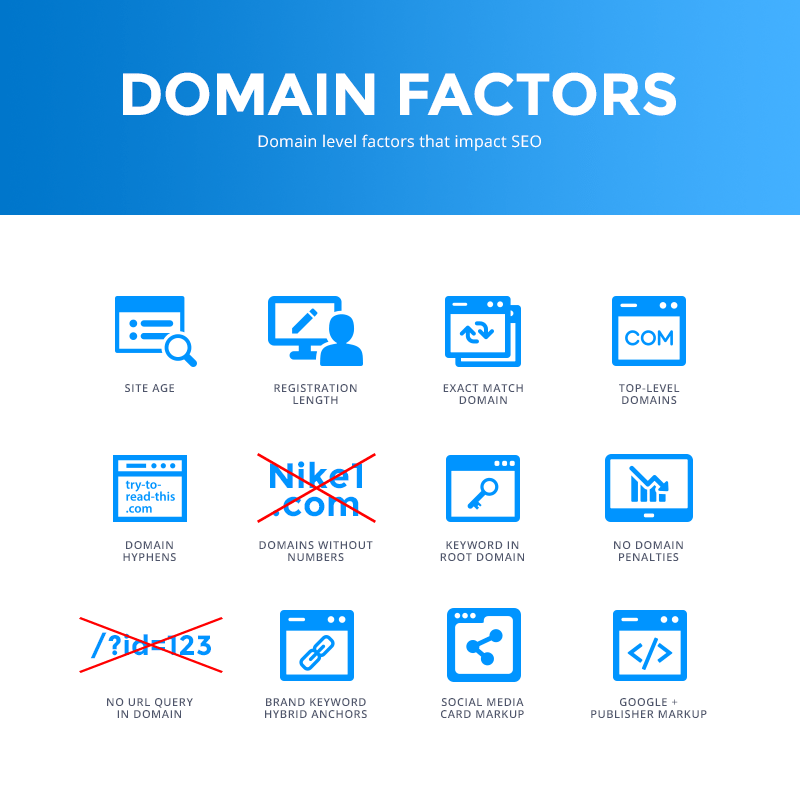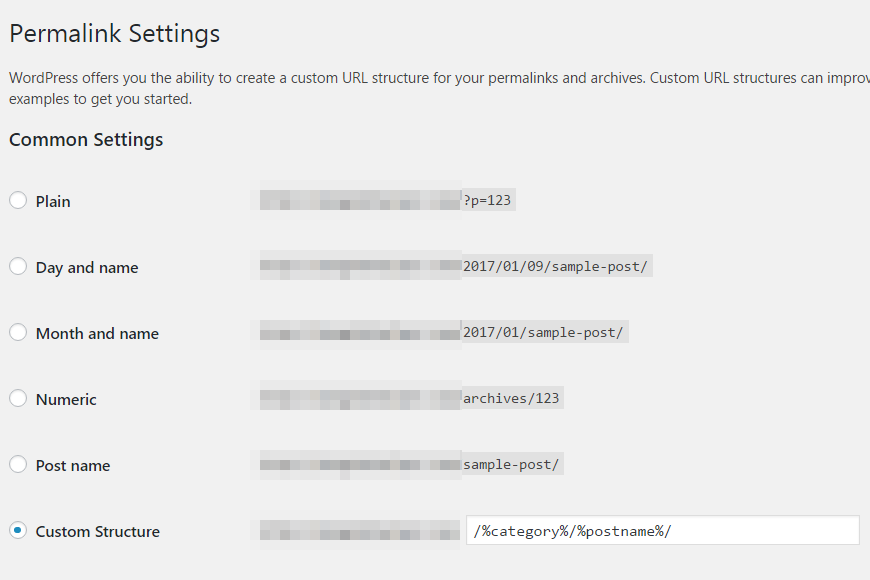Domain Factors That Impact Your Website’s SEO [Infographic]

When working on SEO, most businesses tend to focus on keywords and link-building and forget about everything else.
While those are both certainly useful to your SEO, if your website’s domain is not set up correctly for SEO, you’ll set up a rocky foundation for all future SEO work.

Your website domain is extremely important to your overall SEO strategy, yet businesses often tend to neglect it, or fail to develop a strategy from it.
Why domain level factors matter
A domain level factor is anything to do with your website’s domain name (the URL address).
A poor domain name, or incorrectly created linked structure for website pages, will, over time, compound a negative effect. This can become costly and time consuming to fix.
How much do you know about domain factors that impact SEO?
Here are three factors that are extremely important to your SEO planning, yet are widely overlooked:
Domain age
Arguably the biggest domain factor to ranking content is the age of your website’s domain.
A new website will find it difficult to rank for content if the domain was created recently. The older the domain, the easier it is to rank for keywords.
In these cases, it’s wise for businesses to invest more time toward targeting long-tail keywords and using social media to increase their SEO impact and less time targeting generic keywords or focusing too much on link-building.
No domain penalties
If you’ve hired someone to do your SEO before and they did a bad job, your domain could be (or could have been) penalized by Google. This can greatly impact your website’s search presence.
Something as simple as paying for a back link can see your entire site penalized.
No URL query in domain
A well thought-out domain structure for blog posts, product pages, and services will boost your website’s SEO, and will compound over time as you publish more content. Websites such as WordPress provide you the option to structure your posts in a number of ways.

For smaller sites that only focus on blog content, going with a post name is fine, but bigger sites might want to create sub-directories to separate each section of their website.
For example at Boostability we have:
- www.boostability.com/blog
- www.boostability.com/Boost-U
- www.boostability.com/online-marketing
Each category has what is known as its own slug (blog, Boost-U, online-marketing).
Get all 200+ search ranking factors to test your website
Domain SEO factors are the foundation of your entire SEO strategy. If you optimize your domain for SEO correctly the first time round, it will help improve all other areas of your strategy when it comes time to create blog content, promote on social media, and so on.
